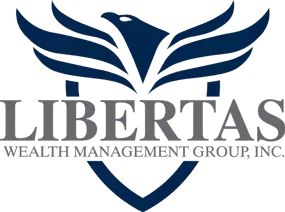How to Become a Better Communicator
Let’s switch things up this week and forego a discussion about money… instead, how would it sound to experience some amazing results in your life?
The answer? “Ask questions and then listen well.”
We have discovered that a disproportionate number of the most successful people in the world, consistently and systematically use an approach known as insightful questioning to build rapport with other people in ways that generate much better outcomes.
Here’s how they engage in insightful questioning – and utilize it to generate truly impressive success.
The importance of insightful questioning
Being adept at using carefully chosen insightful questions serves several purposes:
- It enables you to be more effective at garnering useful and important information from other people, such as their goals – and the drivers behind those goals. Armed with that information, you can potentially find ways to work together that might not have been obvious otherwise.
- It facilitates rapport between you and other people because it seeks to create deeper levels of understanding of all those involved.
- It’s a powerful way to connect with other people and provide you with information that you can use to improve yourself, often while simultaneously helping them, too!
…but you have to be an engaged listener, too!
Asking insightful and thought-provoking questions ultimately won’t help you learn new information or build rapport if you tune out when the other person answers.
John Gray, the author of “Men Are From Mars, Women Are From Venus,” describes this as “reloading,” where the person listening isn’t really listening… they’re just loading up with the next thing they want to inject into the conversation.
Instead, you must also be adept at deep listening – focusing intently on the person talking through fully present, nonjudgmental listening.
When you deeply listen to someone, it’s almost as though you are suddenly standing next to the person and seeing the world as he/she sees it. You essentially become a partner in the conversation, and since most people rarely have the experience of being deeply listened to, this experience of camaraderie is not only equally rare, but it’s impressive, and it makes the other party feel good (as they should!), and even “bonded” to you in a deeper fashion.
So, how do you do it?
You start by saying to yourself, “I am going to have a great conversation with this person, and we will both have a great experience.” This is crucially important, as we all have so many thoughts buzzing around in our heads all day, we must intentionally commit to being as present as possible with the person in front of us. However, by keeping this intention foremost in your mind, you will greatly increase your odds of success.
Then, listen for the person’s thoughts, feelings, values and needs, which he or she might not come right out and say directly.
THE TOP INSIGHTFUL QUESTIONS TO ASK
Consider the following insightful questions that many successful people regularly use in their conversations and dealings with others who are (or may be) important to them.
“What do you think?”
People are very willing to share their opinions and insights if prompted. They want to be recognized for their views and ensure you understand their positions on important matters. Any time you need to act, it’s usually very useful to know where the other person stands.
Gathering intelligence and gaining perspective into the thinking and preferences of the people you are dealing with is always beneficial. Furthermore, this question helps you foster involvement in the process at hand, thereby building rapport and ensuring closure.
“What do you want to accomplish?”
Knowing what a person really wants to accomplish informs you of the degree of overlap (or conflict) among your and that person’s various agendas. It also helps you frame your desires in ways that best resonate with the other person. This can result in a deeper level of rapport and trust, which results in a greater willingness to work alongside you.
“What’s the most important thing we should be discussing today?”
It’s normal for people to go into any meeting with an agenda, however, your objectives for the meeting may not coincide with that of the other person, which can lead to wasted time and effort and adversely impact the relationship. If meeting someone for business purposes, use this question at the start of every visit or when an appointment is going off track, because chances are, the other person is not meaningfully engaged.
To be truly responsive while moving the conversation along requires you to be in-sync with what is important to the other person at that time. This question demonstrates concern and is very useful in addressing critical needs and wants.
“Can you tell me more about that?”
It’s quite common for someone to put forth a position that you might not find completely clear. Many people make mistakes in conversations by making presumptions that may be inaccurate and, consequently, detrimental to the relationship, let alone the conversation at hand.
The better you understand the other party’s thinking, the more successful you will be. By prompting the other person to go deeper, you increase your knowledge of his/her worldview. What ultimately results is a superior understanding that can readily translate into superior deliverables and greater rapport.
“How can I help you?”
Most of the time, people are seeking ways they can benefit themselves. The aim of this question is to determine how you can be supportive of and deliver value to the other person. Ask it whenever there’s an impasse in a discussion, or when the other person is dealing with some difficulties. I remember the first time someone asked me this question – I was floored… “you want to help ME?!” I immediately felt a higher level of respect for this person, which also led to a deeper relationship going forward.
Bottom line, from basic caring and concern to helping facilitate success to building meaningful rapport, your willingness to help the other person can pay enormous dividends. Whether or not you are ultimately able to assist someone, your determination to try to address the matter is a powerful bridge builder.
What’s more, when you voluntarily help someone, that person usually feels a natural inclination to want to return the favor and help you down the line. After all, the deepest of relationships are a harmonious two-way street, aren’t they?!
We know that the #1 reason people fire their financial advisory firm is because of weak, or all-out lack of communication. For this reason, we have a motto behind the scenes at our office that goes like this: “You cannot over-communicate.”
Next to your health, your wealth, retirement, and future well-being is likely the 2nd most important thing in your life, which is why we take so much pride in being proactive, rather than reactive – both when it comes to communication, and our investment management style.
If you would like to get a second opinion on your retirement plan, please reach out to us! You can respond to this message, or CLICK HERE to take the first steps to answer a few questions and get an intro call set up on our calendar.
‘till next time!
Adam

